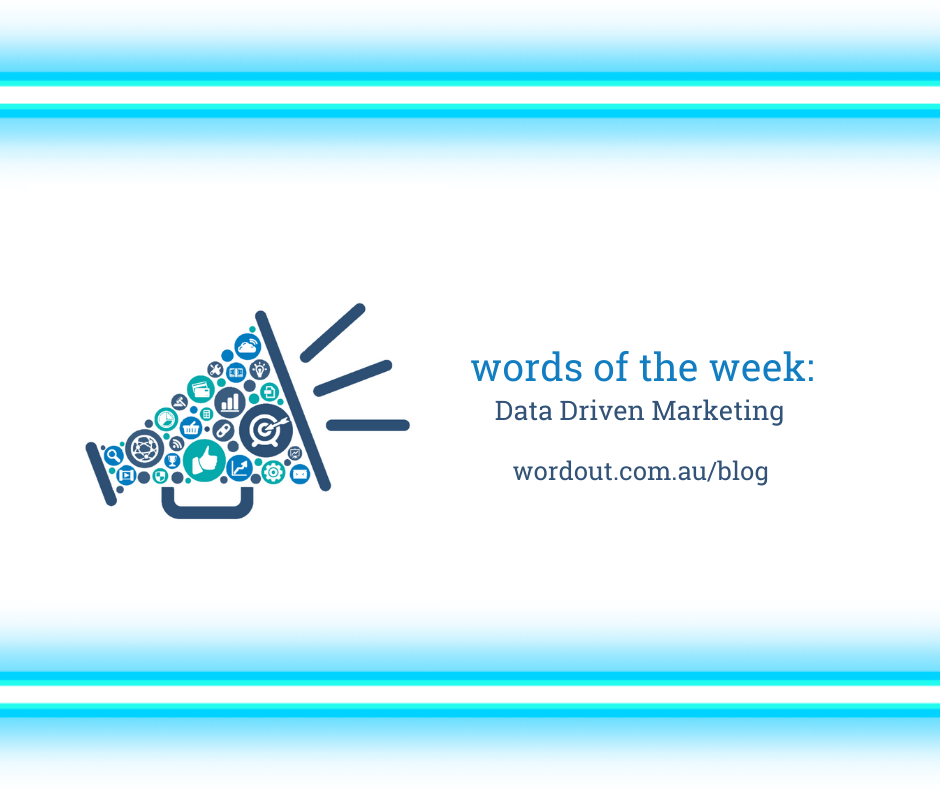Data Driven Marketing
In our third part of the words of the week series, we will be tackling ‘Data Driven Marketing’ or DDM. This topic is complex and different by company size. For this post, we will be tackling DDM from a small to medium business perspective.
What is a Data Driven Marketing (DDM) approach?
A DDM approach is where you capture, analyse and assess customer data to form insights to use in future targeting. Using data to create optimised offers and communications can be more effective in connecting, converting and retaining customers.
Instead of using ‘gut instinct’ to determine what you ‘think’ customers want, A DDM approach informs your instincts and turn them into insights which can be used effectively in developing and maintaining customer relationships.
Why is Data Driven Marketing (DDM) important?
Customers want to feel valued and that their needs are understood when it’s time to make a purchase. If they see irrelevant content and offers they can become frustrated and look elsewhere. Using a DDM approach to segment and target customers effectively enables a more personalised experience. This can achieve higher customer satisfaction and retention.
Data types used in DDM
A barrier to implementing a DDM approach can be the data, as it is seldom that data is all stored in the same place. Data silos can include your Customer Relationship Management (CRM) database, website analytics, eCommerce or advertising platforms and social media data. Having a platform that imports data and provides a single dashboard is desirable, but may not be possible. Especially for smaller businesses.
How do I implement a DDM approach?
Decide what your key objective is, then determine if you have the data available to analyse. If you don’t have the data you need to analyse, start small in what you do have and then focus on gaining the data and insights you need for the future.
Example 1 – Reaching prospective customers effectively through social media
- Run A/B testing campaigns. Look at running the same ad to the same audience but try different layouts using alternative images, headings and buttons. This can show you which is more effective in terms of performance. Facebook Ads lets you shuffle your creative and provide data reports. This can then inform you of how to design more effective ads in the future. Facebook also gives you insights into your customers to help define better targeting in future campaigns.
- Post more relevant content to followers. If you have over 100 followers on Facebook, valuable engagement insights are provided including shares, reactions and comments. This can help inform you which posts/content/themes resonate more strongly with your audience.
Example 2 – Creating personalised offers to top customers/accounts in retail
In this example, top customers may or may not be known with their transaction history. To gain this information, you could use a DDM approach to determine:
The value of in-store purchases versus your online purchases
Look at data captured for each of these channels. For online purchases, login-style accounts may be set up where customer data is available and attached to purchases. If not, there will be at minimum email and delivery addresses captured which can be segmented. There may also be a eCommerce platform as part of the website platform. Here, segmenting by purchases and even categories may be possible to use in re-targeting with special offers including coupons codes, or upsell offers in line with past purchases.
In-store, there may not be a loyalty program in place where customers are attached to purchase transactions. Permanent staff might recognise who a regular customer is, but some casual staff may not.
Recommended DDM approach:
1.Determine and target top online customers
2. Design and implement an in-store loyalty program to capture top customer data. Membership numbers could be then be added to online accounts to complete a customer view.
It’s important to always check your privacy and security settings to ensure you act ethically when contacting and communicating with your customers.
Are you using your data effectively to identify and target customers?
Word out can help you to craft a DDM approach to your marketing to identify, target, convert and retain customers. Reach out to us today.

